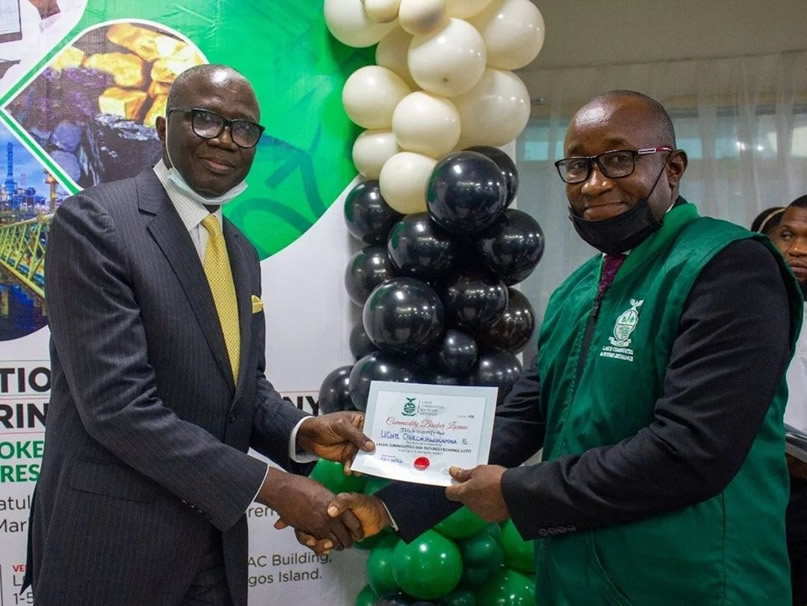Nigeria has been badly affected by heavy rains and high winds since June 2022. Flooding had hit 33 of the country's 36 states as of October 6. The severe flooding has had a substantial impact on certain southern states, including Anambra, Delta, Rivers, Cross River, and Bayelsa. In the country's north, Adamawa, Gombe, Jigawa, and sections of Kaduna, Kogi, Niger, Benue, and Nasarawa have been particularly heavily impacted. (Okunola, 2022)
Rice is grown in practically every state in Nigeria, with 29 states now involved in rice farming. Nigeria's major rice producing states include Ebonyi, Kaduna, Kano, Niger, Benue, Jigawa and Borno, Enugu, Cross River and Kebbi. This already raises concerns as (5) five of the major rice producing states are also experiencing severe flooding. Stakeholders in the rice value chain are concerned that the flooding presently causing havoc on rice crops in producing areas may have an impact on harvest in this year's rain-fed cycle.
Thousands of hectares of rice plantations in Taraba, Jigawa, Kano, Benue, Niger, Kogi, and Kebbi, among other producing states in Nigeria, have allegedly been swept away, according to Daily Trust Newspaper. Some of the farms in the impacted states were either maturing or reaching maturity when the waves wiped them away. (Sahara Reporters, 2022).
Flooding: What Does the Future Hold for the Nigerian Rice Value Chain
Rain-fed rice harvesting season often begins in September in several producing states. Rice is the most popular stable grain in the country, and the current administration has prioritized its development since 2016, with signs indicating that the country is progressively becoming self-sufficient in production. (Sahara Reporters, 2022)
Although the nation has experienced flooding on a yearly basis, farmers and other stakeholders think that the size of this year's floods may undermine the country's advances in rice output if immediate action is not taken. (Sahara Reporters, 2022)
As the holiday season approaches, the average price of rice in Nigeria has reached a record high of N37,000 per 50kg bag in October. This comes as Nigerians have been dealing with long-term food problems due to supply chain disruptions, insecurity, and low farm yields. Recent floods in several sections of the country have aggravated the problem, threatening to propel food inflation much higher. (Oyekanmi, 2022)
Olam Rice Field, one of Africa's largest rice farms, allegedly lost over $15 million in rice investments after its farm in Nasarawa State was swamped by increasing floodwaters. (Oyekanmi, 2022)
The Price of Rice Surged to the Highest Levels
- Following floods that affected rice farmers across the country, the price of a 50kg bag of domestic rice reached a record high of N37,000 in October 2022.
- Domestic rice prices increased from an average of N28,500 in the previous month.
- Similarly, the price of foreign-made rice, which sold for an average of N32,500 in September, has already reached its peak in numerous Lagos markets, reaching N40,000. (Oyekanmi, 2022)
As a result, the price of rice in Nigeria has risen by N8,500 (a 22.97% increase). And imported goods have climbed by N7,500 (an 18.75% increase).
Global Preventive Measures
China which is the largest producer of rice in the world, has also faced their issues with flooding. They have taken measures to help deal with this. Unlike most other countries that deal with floods by Embankments, flood walls, sea walls, Dams and reservoirs, Natural detention basins, Drainage improvement, Diversion of flood waters, which are also good alternative solutions to solving flood, they use sponge cities.
Instead of depending on "gray infrastructure" such as levees, pipes, dams, and channels, Chinese cities are embracing nature and constructing "sponge cities." Sponge cities allow metropolitan areas to absorb water during heavy rains and release it during droughts.
These ideas might be used in cities throughout the world to help with floods, carbon dioxide absorption, increasing animal and plant life, and expanding green areas.
Kongjian Yu, dean of Peking University's College of Architecture, pioneered sponge city research and has spent more than 20 years advocating for its use in China. He believes that the present technique of erecting massive concrete barriers and covering all permeable surfaces is bound to fail, and that instead, communities should embrace nature-based flood mitigation alternatives. (Walsh, 2022). Other Countries have used similar or additional techniques to prevent or adapt to severe flooding.
It's clear that the floods pose devastating circumstances for the Nigerian Rice Value Chain and the entire country that depend heavily on a rice diet. The fast-rising costs of rice is concerning and there is a need to evaluate remedial solutions.
Nigeria needs to invest considerable resources to researching global flood management and preventive techniques that can be adapted to the terrain of most paddy regions in the country. Study into the historical patterns of flooding in Nigeria will proffer deep insights into the problem-solving solutions of severe flooding. We would be amiss to forget the importance of the place of research and development of Rice Paddy Variants for Rice Farmers. It is also important to note that heavy research into Rice Paddy Varieties that are not only flood resistant but can maintain or double yield for farmers to ensure a decline in loss of harvest and protect the Nigerian Rice Value Chain.
 Lagos, NG • GMT +1
Lagos, NG • GMT +1











 350 views
350 views













 Sponsored Ad
Sponsored Ad
 Advertise with Us
Advertise with Us









